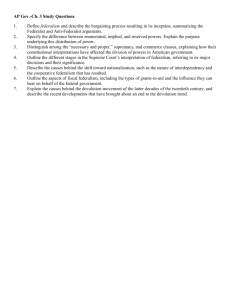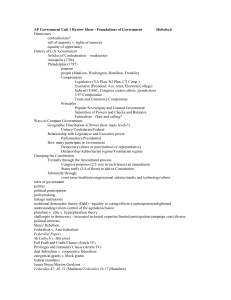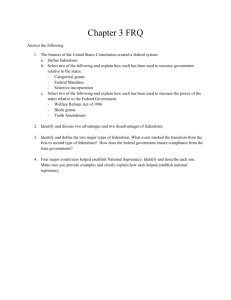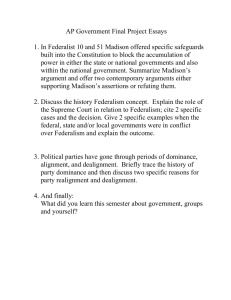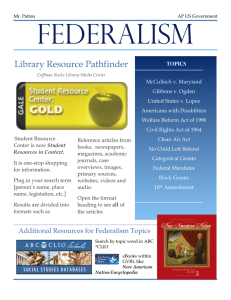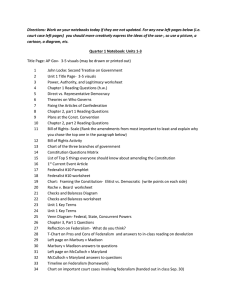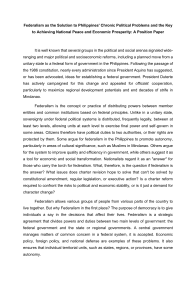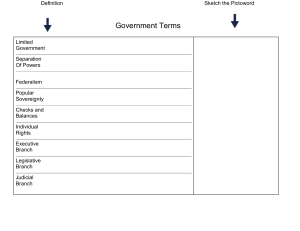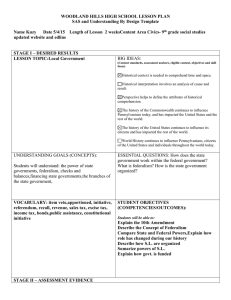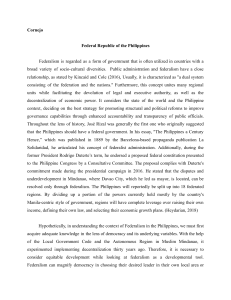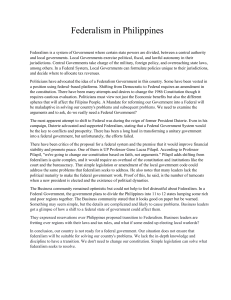Federalism in the Philippines: A False Hope?
advertisement
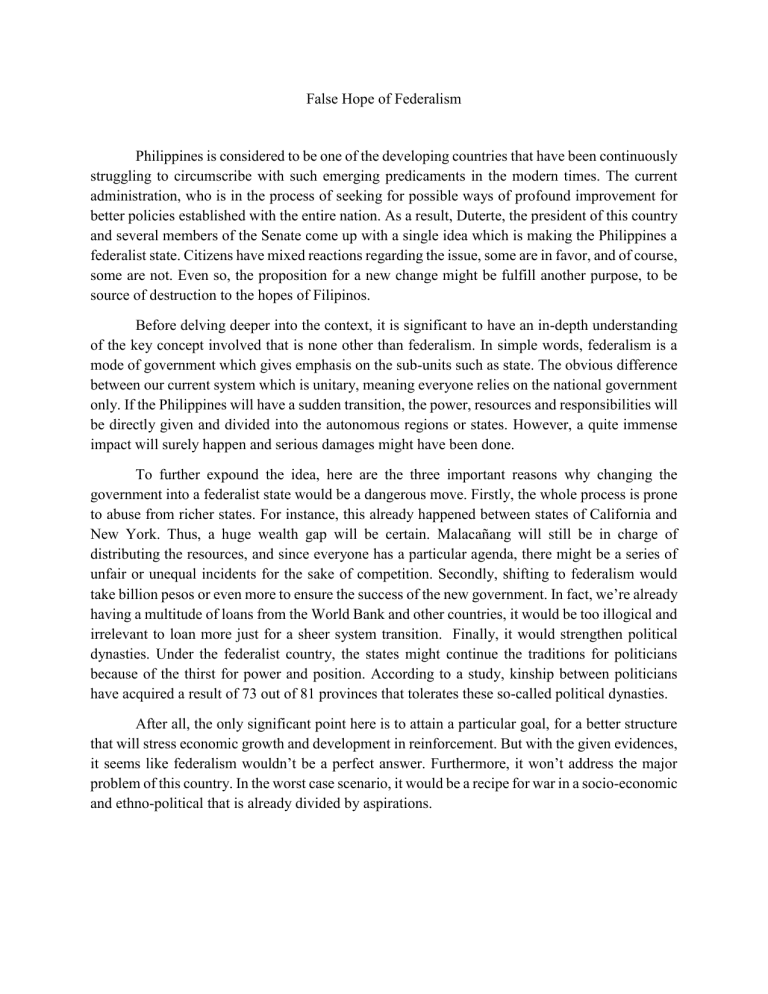
False Hope of Federalism Philippines is considered to be one of the developing countries that have been continuously struggling to circumscribe with such emerging predicaments in the modern times. The current administration, who is in the process of seeking for possible ways of profound improvement for better policies established with the entire nation. As a result, Duterte, the president of this country and several members of the Senate come up with a single idea which is making the Philippines a federalist state. Citizens have mixed reactions regarding the issue, some are in favor, and of course, some are not. Even so, the proposition for a new change might be fulfill another purpose, to be source of destruction to the hopes of Filipinos. Before delving deeper into the context, it is significant to have an in-depth understanding of the key concept involved that is none other than federalism. In simple words, federalism is a mode of government which gives emphasis on the sub-units such as state. The obvious difference between our current system which is unitary, meaning everyone relies on the national government only. If the Philippines will have a sudden transition, the power, resources and responsibilities will be directly given and divided into the autonomous regions or states. However, a quite immense impact will surely happen and serious damages might have been done. To further expound the idea, here are the three important reasons why changing the government into a federalist state would be a dangerous move. Firstly, the whole process is prone to abuse from richer states. For instance, this already happened between states of California and New York. Thus, a huge wealth gap will be certain. Malacañang will still be in charge of distributing the resources, and since everyone has a particular agenda, there might be a series of unfair or unequal incidents for the sake of competition. Secondly, shifting to federalism would take billion pesos or even more to ensure the success of the new government. In fact, we’re already having a multitude of loans from the World Bank and other countries, it would be too illogical and irrelevant to loan more just for a sheer system transition. Finally, it would strengthen political dynasties. Under the federalist country, the states might continue the traditions for politicians because of the thirst for power and position. According to a study, kinship between politicians have acquired a result of 73 out of 81 provinces that tolerates these so-called political dynasties. After all, the only significant point here is to attain a particular goal, for a better structure that will stress economic growth and development in reinforcement. But with the given evidences, it seems like federalism wouldn’t be a perfect answer. Furthermore, it won’t address the major problem of this country. In the worst case scenario, it would be a recipe for war in a socio-economic and ethno-political that is already divided by aspirations.

